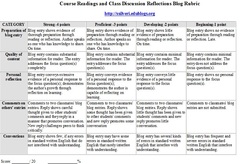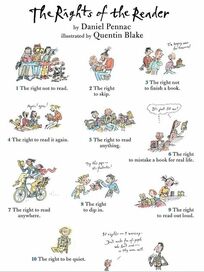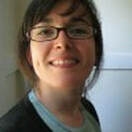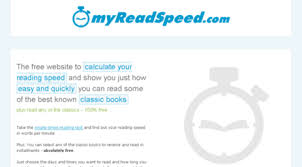Today, I would like for you to read and respond to the article, "In the Minds of Others" by Keith Oatley. You should read and annotate the print article that I give you, but I will also include a link here. This article further develops the ideas from Independent Reading Blog #2 and will be of use later when we finish our Independent Reading Unit.
"Literature’s Emotional Lessons: |
Blog Post Rubric
Archives
February 2023
Categories
All
|





 RSS Feed
RSS Feed